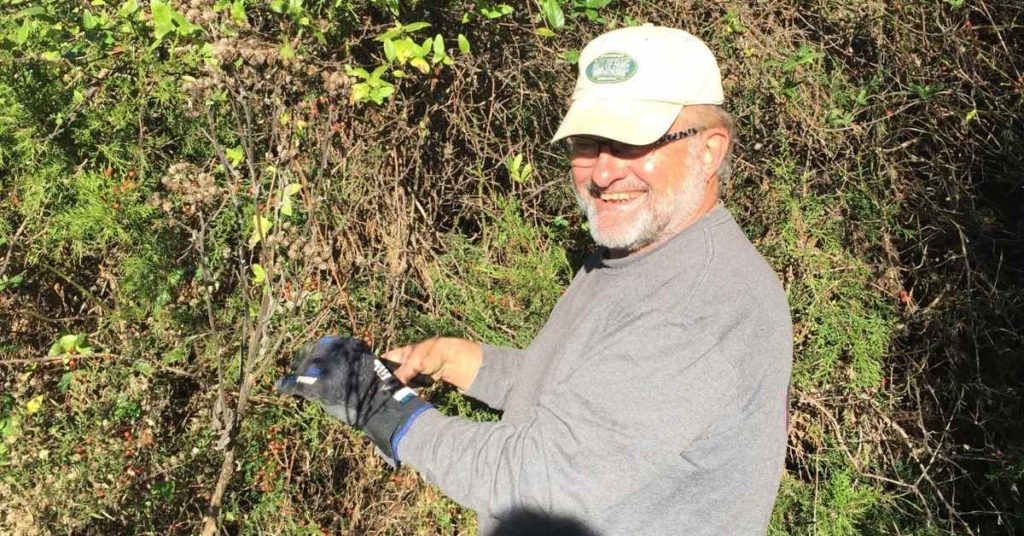
I’m reading “Braiding Sweetgrass” by Robin Wall Kimmerer. It’s about Indigenous Wisdom, Scientific Knowledge and the Teachings of Plants written by a scientist who is also a member of the Citizen Potawatomi Nation.
Kimmerer teaches botany and ecology at a university several times a week. One morning, she surveyed her 3rd year students, asking them to rate their understanding of the negative interactions between humans and the environment. Nearly all 200 students confidently said that humans and nature are a bad mix. They were well schooled in the mechanics of climate change, toxins in the land and water, and the crisis of habitat loss. Later in the survey, they were asked to rate their knowledge of positive interactions between people and land. The median response was “none.”
She was stunned that in all their years of education these students couldn’t think of any beneficial relationships between people and the environment. (p 6)
On page 20-21 she writes, “How generously they (the plants/animals) shower us with food, literally giving themselves so that we can live. But in the giving, their lives are also ensured. Our taking returns benefit to them in the circle of life making life, the chain of reciprocity. Living by the precepts of the Honorable Harvest – to take only what is given, to use it well, to be grateful for the gifts, and to reciprocate the gift – is easy in a pecan grove. We reciprocate the gift by taking care of the grove, protecting it from harm, planting seeds so that new groves will shade the prairie and feed squirrels.”
As I’ve watched my husband work on our property, I see him constantly giving back to nature. He never randomly comes in and mows things down. He is conscious of every plant, tree, and shrub. He rarely eliminates anything. The only thing I’ve seen him remove and burn are invasive trees or shrubs.
Just this morning, he told me about how an invasive tree was tangled up with a young hickory tree the other day. He removed the invasive tree so the hickory will receive the nutrients it needs.
He’s converting our lawn to wildflowers, and now our once silent property is filled with the chirping of birds and buzzing with bees, hummingbirds, butterflies, and dragonflies. He’s feeding the pollinators who carry life from plant to plant, from tree to tree, and all the plants, insects and animals are benefited. Back in the summer, we stopped by a neighbor’s house and bought some of his natural raw honey. His bees were most likely sipping nectar from our wildflowers.
My husband recently started a little nursery section of our property where he temporarily places trees and bushes that won’t be able to grow to maturity where they originally sprouted. He transplanted elderberry bushes into the nursery from a parcel of land our neighbors intend to clear. Each day, David pulls up a couple invasive bushes around our property. Within the crater left behind from the removal of the root ball, he places an elderberry bush.
Some days he asks me if what he is doing means anything in the grand scheme of things. Each time he wonders that aloud, I assure him that what he is doing to make our property self-sufficient means the world to me. It makes me feel safe and secure and well-provided for. As I’m reading, “Braiding Sweetgrass” I’m realizing what he’s doing means the world to nature as well.
What if everyone treated their little parcel of land with such loving care as David does? Each plant matters to him. He doesn’t just mow over sprouting trees. If they are in a poor location, he moves them to a spot where they have a greater chance for survival. Every hickory tree he saves will feed future squirrels and give a home to the cardinals. Every elderberry bush he nurtures will feed next year’s songbirds and provide more elderberry juice to carry us through the winter.
In providing for our family, he gives back to nature. There is so much good one man can do. Why do we never hear about these types of stories? Why is it always about man’s destruction of nature? Why is no one taught about how mankind gives back? If we understood the cycle, we could do more of the right things.
Nobody changes by us shaming and blaming them. People change when they are educated and inspired to do so. Shifting responsibility onto governments or corporations is abdicating our own individual responsibility to be good stewards of our own little world. If we want the world to change, we must start educating ourselves and the next generation on the beauties of nature, the joy to be found in it, and how we can lovingly and happily give back.
From a limited perspective, one could say the bees “pillage” the pollen from the flowers. But in the grand scheme of things, bees spread life. They are vital to pollinating a world – all while they do something that could appear self-serving to them. We, like the bees, are giving back to the planet. How can we ever be inspired to give back if we don’t think it’s possible to do so? If we view mankind’s very existence as an affront to nature, if we constantly view ourselves as pillagers and conquerors, we’ll never be inspired, much less know that we are part of God’s grand design for the Earth. The Earth needs us, just as we need it.
What might this earth stewardship look like in the future? My dystopian novel, “Z: A Dystopian / Millennium Novel” illustrates what a healthy relationship with nature can look like in a world gone haywire.

Pingback: Earth + Us: Eco-Lessons from the Land - CyranoWriter
Pingback: Earth + Us Part 2: Weeding Uncovers Treasures Haiku - Nature's Guys